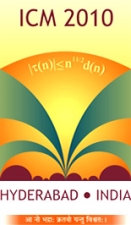Mathematics in India
Mathematics seems to have acquired an independent identity as an intellectual discipline early on in human history. In the second half of the millenium before Christ, the Greeks brought to this identity a sharper focus. The Hellenic conception of mathematics preserved through the middle ages by the Persians and the Arabs was reclaimed by the West as its legacy in the modern era. However further East – in India or China – the Hellenic view of mathematics does not seem to have had much of an impact. But mathematics was pursued all the same – even if the style was very different from the Eucldean pardigm – and important strides were made. Most historians of mathematics of an earlier era, steeped in Western culture as they were, failed to recognise some of these great achievements, partly because they had inadequate exposure to the works and may be because of the unfamiliar, very non-Greek style, employed in these works.
In the last three or four decades however there has been a lot of interesting work done on the history of mathematics in regions other than Europe and the middle East. This has resulted in new insights and reassessment of non-european roots of mathematics. We would like to draw the attention of the mathematical community to a recent book on Indian mathematics by Kim Plofker (Mathematics in India by Kim Plofker, Princeton University Press, 2008. US$39.50, 384 pages ISBN-13: 978-0691120676). A review of the book by David Mumford appears in the Notices of the American Mathematical Society.




